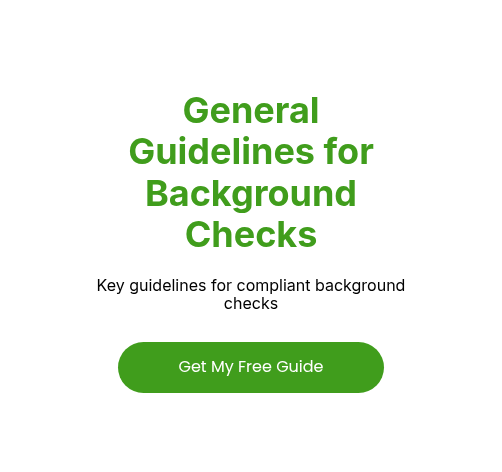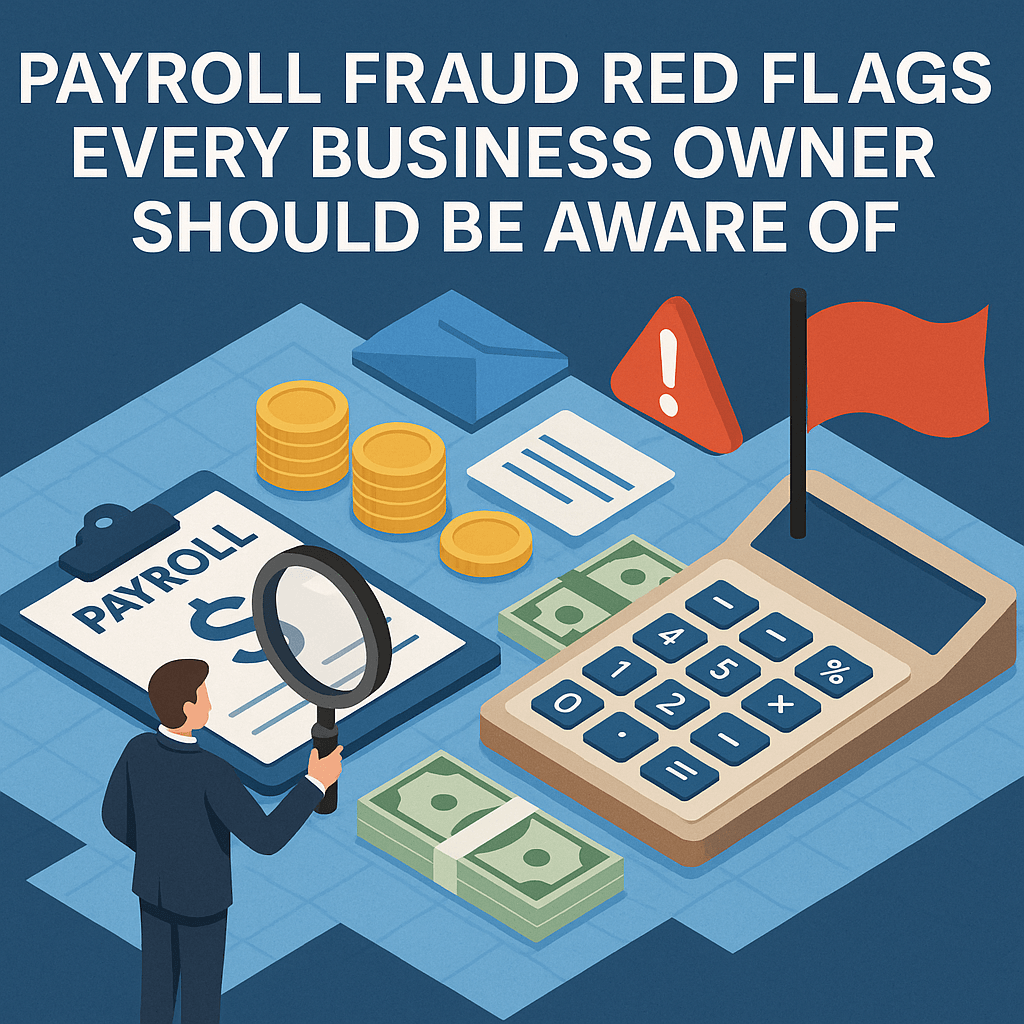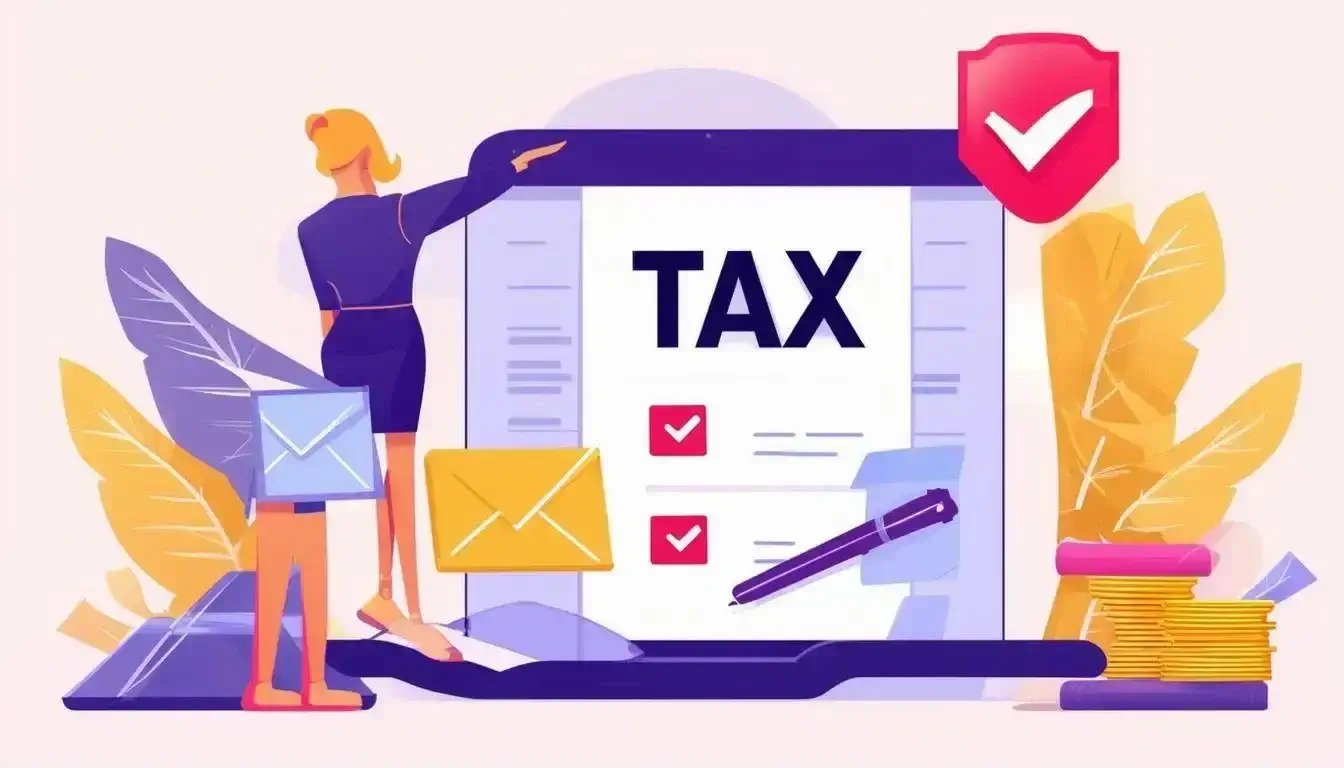Master Compliant Background Checks to Protect Your Business
July 15th, 2025
6 min read
Hiring the right people is fundamental to your business's success. But did you know that making the wrong hiring decision can be costly, not just in terms of productivity, but also due to significant legal liabilities? Background checks are an essential tool for verifying a candidate's information and ensuring a safe, productive workplace. However, navigating the complex legal landscape of compliant background checks can feel daunting. Are you confident that your current background check process is fully compliant with federal, state, and local employment laws?
At Lift HCM, we understand the unique challenges employers, especially small business owners and HR managers, face in ensuring compliant and effective pre-employment screening. With years of experience in human capital management, we've helped countless businesses streamline their hiring processes while mitigating risk and fostering HR compliance.
This article will provide you with a clear, actionable framework for conducting compliant background checks, protecting your organization, and making informed hiring decisions.
Table of Contents
- The Foundation of Compliant Hiring
- Types of Background Checks: Tailoring Your Screening Process
- Professional Reference Checks: Gaining Deeper Insights
- Education and License Checks: Verifying Credentials
- Credit Checks: Assessing Financial Responsibility
- Criminal Records Checks: Navigating Complexities
- The Fair Credit Reporting Act (FCRA): Your Essential Compliance Guide
- Ready to Master Compliant Background Checks and Protect Your Business?
The Foundation of Compliant Hiring
Background checks are crucial in hiring decisions, offering benefits like verifying identity, work history, education, and criminal history. For employers, they are a vital step in risk mitigation and ensuring a good fit. However, not conducting them properly carries significant liability risks. To ensure your background checks are fully compliant and effective, consider these foundational guidelines:
- Reasonable, Appropriate, and Relevant Scope: Ensure the scope of your background check is directly related to the job's requirements and potential risks.
- Consistent Application: Apply the same background check process consistently for all candidates applying for the same position to avoid discrimination.
- Compliance with State and Local Laws: Always adhere to specific state and local laws, particularly concerning criminal background checks, as these can vary widely.
Understanding these foundational principles is the first step towards a robust and compliant screening process. Next, let's explore the various types of background checks available and when each is appropriate for your hiring process.
Types of Background Checks: Tailoring Your Screening Process
Understanding the various types of background checks available is crucial for tailoring your screening process to specific roles and potential risks. Common types include:
- Professional Reference Checks: Gain invaluable insights into a candidate's work ethic and past performance from former employers or colleagues.
- Educational History and Licensing Checks: Verify academic credentials and essential professional licenses, especially for roles requiring specific qualifications.
- Credit Checks: Assess financial responsibility, primarily for roles involving handling financial assets or sensitive financial data.
- Criminal History Checks: Review an applicant's legal history to assess potential risks relevant to the job.
The key is to strategically select and combine these pre-employment checks, ensuring each is directly relevant to the responsibilities and potential risks of a specific job opening, thereby enhancing your hiring compliance.
Professional Reference Checks: Gaining Deeper Insights
Professional reference checks offer invaluable qualitative insights into a candidate's job performance, work ethic, and interpersonal skills. These typically involve contacting former employers, colleagues, or mentors provided by the applicant.
Key Considerations for Employers:
- Written Consent is Essential: Always obtain the applicant's written consent before contacting any references. This is a critical employer obligation.
- Information Provided: References typically provide information on employment dates, positions held, job performance, strengths, and weaknesses.
- Legal Restrictions: Be aware that asking about wages or salaries is illegal in many states. Stay informed about these employment law nuances.
- Addressing Challenges: Some companies have policies that limit the information references can provide due to liability concerns. However, some states offer immunity laws for truthful references, encouraging more candid feedback.
Strategies for Meaningful Feedback:
- Direct Contact: Whenever possible, aim for direct contact with former supervisors; they often provide the most relevant insights.
- Scheduled Calls: Schedule set times for reference calls to ensure dedicated attention and a focused discussion.
- Performance Evaluations: Requesting past performance evaluations (with applicant consent) can help verify information.
Examples of Job-Related Questions:
When contacting references, focus on job-related, performance-based questions:
- Can you confirm the applicant's job title and employment dates?
- How would you describe their job performance, communication style, strengths, and weaknesses in that role?
- Would you be willing to rehire the applicant?
Assessing Reference Feedback:
When evaluating reference feedback, consider these factors to gain a complete picture:
- The referee's relationship to the applicant.
- The duration and depth of their knowledge about the applicant's work.
- The relevance of the referee's position and experience to the applicant's work history.
Education and License Checks: Verifying Credentials
For many positions, verifying academic degrees and active professional licenses is non-negotiable. This is particularly true for roles that require specific certifications or educational backgrounds, such as healthcare, finance, or engineering. Third-party background check providers often play a crucial role in efficiently and accurately conducting these essential verifications, saving HR managers valuable time and ensuring accuracy.
Credit Checks: Assessing Financial Responsibility
Credit checks primarily serve to assess financial responsibility, making them most relevant for roles within financial institutions, positions that involve handling significant financial assets, or those requiring a high degree of fiscal trustworthiness.
Crucial Legal Considerations:
- Fair Credit Reporting Act (FCRA): Credit checks are heavily regulated by the FCRA, which mandates specific procedures for their use in employment. Understanding the FCRA requirements is paramount.
- Federal Bankruptcy Act: This act prohibits employers from making hiring decisions based solely on bankruptcy filings.
Best Practices for Employers:
- Demonstrable Relevance: Use credit checks only when a candidate's financial history is directly and demonstrably relevant to the job's responsibilities. Document this relevance.
- Holistic View: Understand that a candidate's past financial history may not always reflect their current financial responsibility or capacity. Consider the full context.
Criminal Records Checks: Navigating Complexities
Criminal records checks are a common component of background screening, providing insight into an applicant's legal history. Utilizing reputable background check providers is highly recommended for efficiency and accuracy in obtaining these records, ensuring you meet HR compliance standards.
Crucial Legal Considerations for Employers:
- Notification Requirements: Always inform applicants in writing that a criminal background check will be conducted. This is part of your employer obligations.
- State and Local Laws: Compliance with varying state and local laws is paramount, as these often restrict the types of criminal history employers can consider. Be aware of "Ban the Box" laws and other local ordinances.
- Individualized Assessment: When evaluating criminal records, federal guidance from the EEOC (Equal Employment Opportunity Commission) requires an individualized assessment. Consider:
- The nature and gravity of the offense.
- The time elapsed since the conviction or completion of the sentence.
- The direct relevance of the offense to the specific job duties.
Examples of Restrictions:
- Many jurisdictions prohibit considering arrests that did not lead to a conviction.
- Expunged or sealed records should typically be excluded from consideration.
- Some laws mandate considering additional factors like the applicant's age at the time of the offense and evidence of rehabilitation.
Federal and State Requirements:
Certain positions, such as childcare roles or those involving public trust (e.g., financial institutions), may have additional federal and state requirements, including fingerprinting and specific conviction record checks.
Lawful Refusals Based on Conviction Records:
Any refusal to hire based on a conviction record must be justified by the nature, timing, and direct relevance of the offense to the job. Employers are often required to conduct case-by-case evaluations rather than applying blanket policies, which can lead to discrimination claims.
The Fair Credit Reporting Act (FCRA): Your Essential Compliance Guide
The Fair Credit Reporting Act (FCRA) is a cornerstone of compliant background checks, designed to promote accuracy, fairness, and privacy in consumer reports, which include background checks. When employers use third-party background check providers (Consumer Reporting Agencies or CRAs), they have specific employer obligations:
- Clear, Written Disclosure: Employers must provide a clear and conspicuous written disclosure to the applicant in a standalone document, explicitly stating that a background check may be obtained for employment purposes.
- Written Authorization: Obtain written authorization from the applicant or employee before procuring a report.
- Certify Compliance: Employers must certify to the CRA that they will comply with all equal employment opportunity laws and regulations.
Crucial Steps Before Taking Adverse Action:
If you intend to take adverse action (e.g., rescinding a job offer or terminating employment) based on information from a consumer report, you must follow these crucial steps to ensure FCRA compliance:
- Pre-Adverse Action Notice: Provide the applicant with a copy of the consumer report and a written summary of their rights under the FCRA. This allows them to see the information that influenced your decision.
- Waiting Period: Allow a reasonable amount of time (typically five business days, though this can vary by state) for the applicant to review the report and dispute any inaccuracies. This is a critical step for applicant rights.
- Adverse Action Notice: If, after the waiting period, you still decide to take adverse action, provide a final adverse action notice. This notice must include:
- The name, address, and phone number of the CRA.
- A statement that the CRA did not make the hiring decision.
- Notice of the applicant's right to dispute the accuracy or completeness of the report.
- Notice of their right to request a free disclosure from the CRA within 60 days.
Best Practices for Compliance: Ongoing Vigilance
Maintaining compliance in background checks requires ongoing vigilance and proactive measures. For small business owners and HR managers, these practices are key to minimizing risk:
- Develop Standardized Employment Forms: Create standardized employment forms for consumer report disclosure and authorization to ensure consistency and legal adherence across all hires.
- Consider Ongoing Consent: Where permissible by law, consider including language for ongoing consent for future background checks during employment, especially for roles that require continuous screening.
- Stay Updated on Laws: Regularly monitor and stay informed about changes in state and local laws governing background checks, as these can evolve frequently and impact your HR compliance.
- Continuous Review: Continuously review and update your policies and procedures to ensure full compliance with the FCRA and all other applicable employment laws and regulations.
Disclaimer: The content provided in this article is for informational purposes only and does not constitute legal, accounting, or tax advice. Employers are solely responsible for ensuring their background check practices comply with all applicable federal, state, and local laws and regulations.
Ready to Master Compliant Background Checks and Protect Your Business?
Navigating the intricacies of compliant background checks can be complex, especially with evolving regulations. At Lift HCM, we're dedicated to helping businesses like yours ensure every hire is compliant, confident, and contributes to a safe workplace. That's why we're sharing this free guide!
This guide provides key guidelines for conducting compliant background checks, as well as:
Different types of background checks, including professional references, education and license verification, credit checks, and criminal records checks.
Legal requirements, such as compliance with the Fair Credit Reporting Act (FCRA) and state/local laws.
Best practices for obtaining consent, evaluating information, and ensuring compliance with applicable laws.
Don't leave your business vulnerable to costly non-compliance issues. Partner with Lift HCM to empower your hiring process with knowledge and peace of mind!
Caitlin Kapolas is a results-driven professional with a strong background in account management and retail. She is dedicated to improving client experiences and building lasting relationships. Caitlin excels in identifying client needs, resolving issues, and implementing customized solutions that drive value. Her effective communication skills ensure high client satisfaction and loyalty, making her a trusted advisor and partner in meeting client needs with precision and professionalism.
Topics:




.png?width=1536&height=1024&name=Create%20a%20background%20that%20reads%2c%20How%20Long%20to%20Keep%20P%20(1).png)













